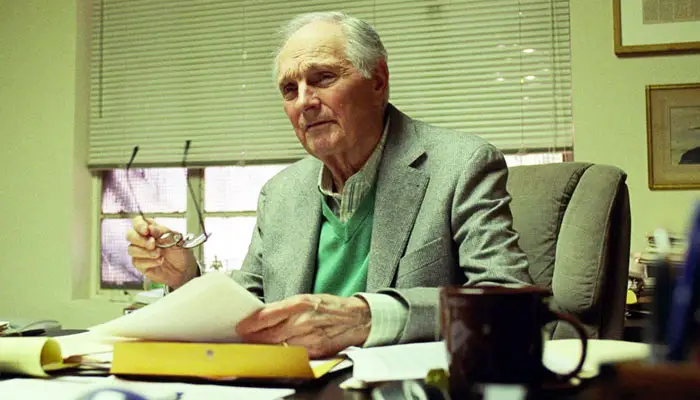
“I’ve often thought that whatever method I have changes with each part I play. Somehow I gotta get to where I want what the character wants. I don’t feel I’m there until I feel I’m entitled to get what the character wants.” – Alan Alda
Emmy Award-winning actor Alan Alda may devote more time to his podcast, Clear+Vivid with Alan Alda, than acting these days, but the 86 year-old M*A*S*H legend certainly has much still to share about the craft of acting. In an interview with The New Yorker to promote the 200th episode of his podcast, Alda reflected on his career and shared some of the lessons he learned as an actor — including the best bits of advice he gleaned from his collaborators over the years.
Alda offers an unexpected answer when he is asked by the interviewer what was “the first acting role that really challenged” him, Alda says it was every role. He responds, “They all did. I like the notion of working as hard as you can but eternally being a kind of amateur. I’ve often thought that whatever method I have changes with each part I play. Somehow I gotta get to where I want what the character wants. I don’t feel I’m there until I feel I’m entitled to get what the character wants.”
When questioned what he means by “until I feel I’m entitled to get what the character wants,” Alda adds, “Well, whatever he wants—from ‘I want your lunch’ to ‘I want your wife’ to ‘I want you dead.’ They call us actors because we accomplish action. There’s something dynamic going on, and that’s usually associated with a want, a desire. You can act as if you want something but not really believe it. That’s not very interesting to watch.”
Though Alda worked with many acclaimed actors in his career, he doesn’t think of any as a particular mentor — however, he points out that he’s learned a lot of valuable lessons from many other individuals. He explains, “Once in a while, I’d find myself being mentored by someone, but in very minor ways. Things like ‘Don’t run out of breath in a long speech.’ I was at an audition once, when I was about twenty-one, and the guy sitting next to me had been in the theatre for decades. He said, ‘You know, it’s very important to know your first line.’ When you think about it, I guess it is! If you’re going to pick a line to not know, it shouldn’t be the first one.”
For example, one of those important lessons that Alda learned was from director Mike Nichols, who directed Alda and actress Barbara Harris in the Broadway musical The Apple Tree. Alda recalls, “Barbara Harris and I were rehearsing a scene, and Mike said, ‘You’re not relating to each other much at all.’ He said, ‘You kids think relating is the icing on the cake. It’s the cake.’ And that put into words what I was learning, and that has become foundational for me.”
To illustrate his point, Alda points to televisions shows that frequently use close ups to get through long dialogue scenes — something less likely done in film and impossible to do in theater. Alda continues, “You can tell when you watch acting into which not a lot of time has been put. You see it a lot in procedural police television shows, where they’ve got to get twelve closeups of twelve people in a room, and the actors are saying things like ‘Maybe he did it at four o’clock.’ ‘No, the freeway was closed at four o’clock. Maybe he did it at three o’clock.’ They’re not really talking to one another. They’re saying it because it’s on the page.”




